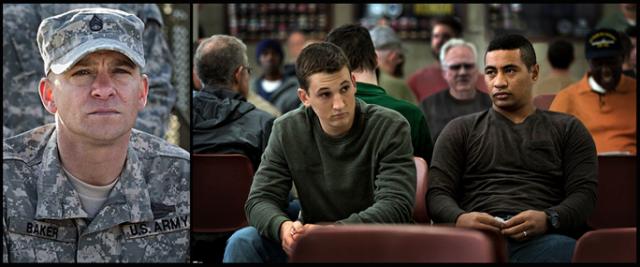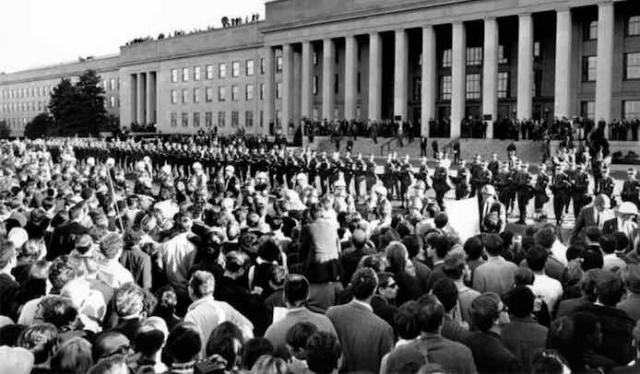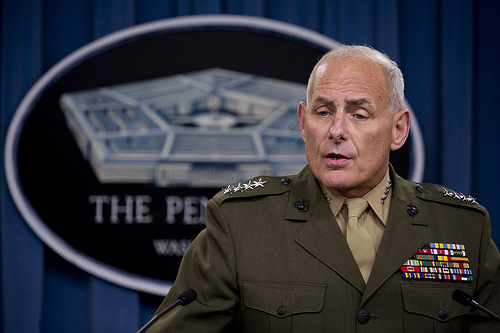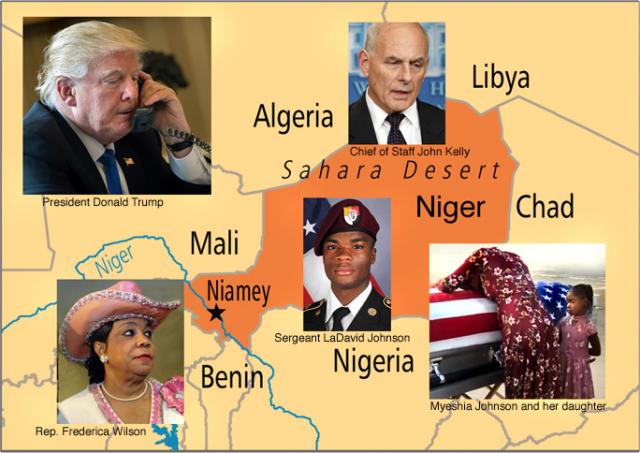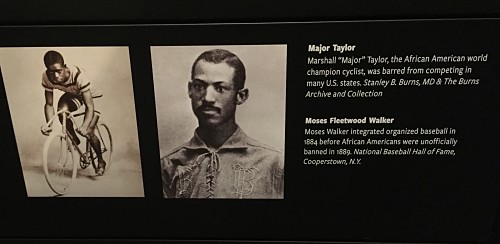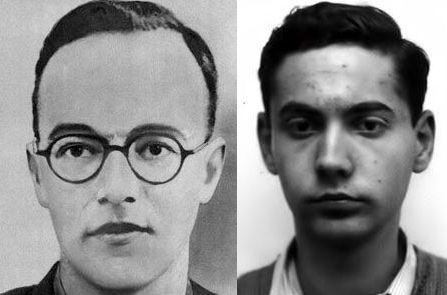I’m admitting I made a horrible mistake.
- Bo Bergdahl’s testimony in his court martial
Charging a man with murder in Vietnam is like charging someone for speeding at the Indianapolis 500.
- From Apocalypse Now
Obviously, to ask who endangered soldiers more, President Bush or Bo Bergdahl, is a rhetorical question. The real issue is whether a Dishonorable Discharge, a demotion and a fine is enough punishment for Bo Bergdahl. It’s clear by now it’s out-of-bounds (poor etiquette) to suggest our major leaders should be held accountable for bad military decisions that put soldiers in harms way and cost lives. It’s a variant of the bumper sticker, “Kill one person, it’s murder; kill 100,000, it’s foreign policy.” Accountability is like gravity; it slips and falls and tends to find the most susceptible person or entity that can be turned into a receptacle for the blame. Naturally, you wave the flag like crazy while guiding the blame downward. Unless, of course, you were Japanese at the height of their failed, imperial thrust into the world; then, you made martial sounds as you sliced your guts open and a loyal factotum lopped your head off. There’s a certain honor in that.
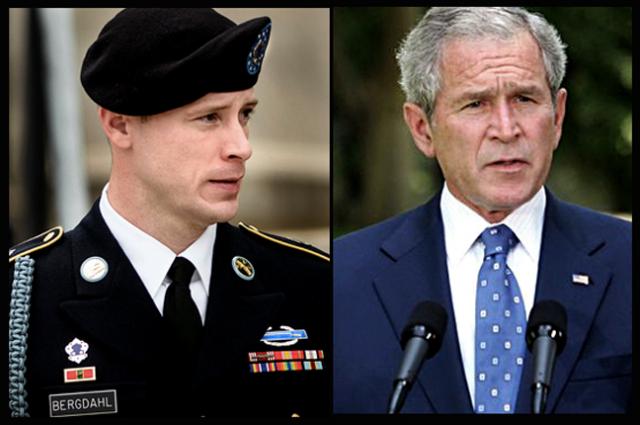 Sergeant, now Private, Bo Bergdahl and President George W. Bush
Sergeant, now Private, Bo Bergdahl and President George W. Bush
The question of moral and political accountability is a perennial one. It’s hard to find anyone in either major party who still holds on to the idea the 2003 invasion and occupation of Iraq by George W. Bush — the “war president” and “the decider” — was anything but a terrible foreign policy decision. As the younger President Bush put it: “I hear the voices, and I read the front page, and I know the speculation. But I’m the decider, and I decide what is best.” Those of us who cried out in vain from the beginning that the decision to invade Iraq was wrong and could lead nowhere but to even worse disasters now see it as a decision that unleashed a debacle that keeps on paying dangerous dividends. President Bush ducked under the radar after his part in it was over and started doing what he probably should have done from the beginning: He painted not-so-bad, primitive paintings of veterans, dogs and his toes in the bathtub.
The lack of accountability at the top is especially acute right now when nuclear war looms over us vis-a-vis North Korea. Not only does the current commander-in-chief not accept accountability — “the buck” no longer stops in the Oval Office — he’s a master in the cultural realm he flourishes in at finding and flogging scapegoats. His “base” will let him get away with, as he famously put it, shooting someone on Fifth Avenue. In Bergdahl’s case, he wanted the man executed. If he had his way, it would be something produced by Faye Dunaway’s character in the film Network: “The Execution Hour”.

